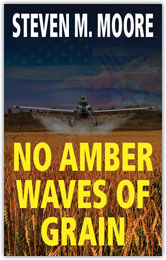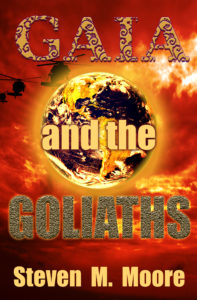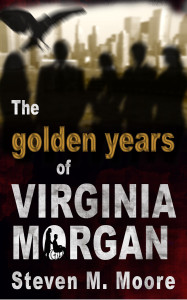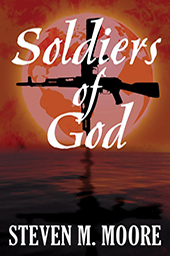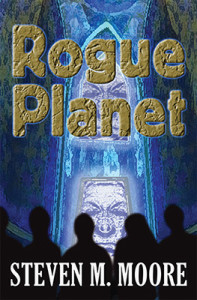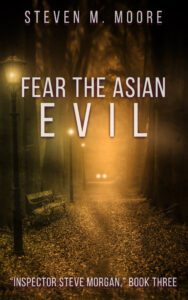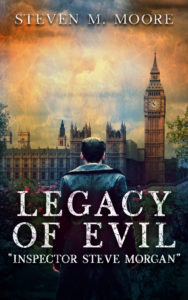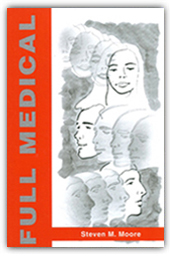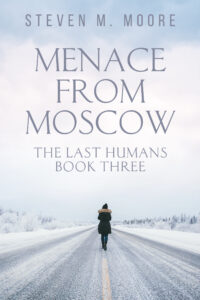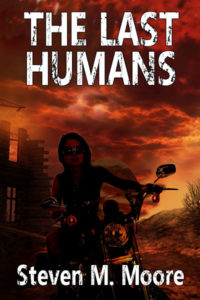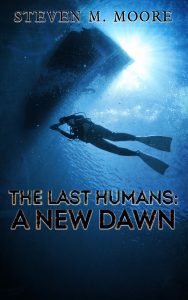Social media sucks!
Wednesday, October 30th, 2024Only a few decades ago when the internet was young and made more sense, the PR and advertising gurus who supposedly worked on behalf of authors emphasized two marketing strategies more than others: Get a website and participate in social media.
Obviously, I still have a website. I’ll admit it’s now a bit out of date. I’ve never sold my books (nor Bibles published in China like Trump) nor T-shirts with “In Libris Libertas!” displayed on them (heaven forbid MAGA T’s!). That’s just plain tacky (even in politics!). I update my website’s content as I see fit, only occasionally resorting to the wonderful expertise I’ve found at Monkey C Media, the company that originally designed my website.
But social media for this author? Not so much anymore. Allow me to explain why.
Social media isn’t what it used to be. Zuckerberg allowed Facebook to become the tool of trolls, conspiracy theorists, child exploiters, and many other nasty people, domestic and foreign. Musk bought Twitter and turned it into X, ruining that social media site as well. I apologize to all my friends and followers at those two popular social media sites for leaving them (though they might not have realized I was gone!), but I just couldn’t tolerate what happened to and continues to occur at those sites.
The old warhorses Goodreads and LinkedIn have similar problems. I just haven’t got around to leaving them yet. The first, Goodreads, had some interesting discussion groups that became nasty echo chambers dominated by small-minded autocratic group leaders and their anti-author minions; it got worse when Bezos took over the site (i.e., made it yet another Amazon slave–Thomas Mercer suffered a similar fate, but it was once a respected publisher, not a social media site). Mr. Bezos ruins anything and everything (including his marriage and the Washington Post! In the publishing context, I have other reasons for despising Amazon as well. None of my recent books have appeared on Amazon for those reasons,)
The second “social media” site that’s no longer so social, LinkedIn, seemed a lot more useful at first, again for its discussion groups but also for its “connections” to people working in publishing. LinkedIn’s discussion groups have gone the way of Goodreads’; the connections are still there, but at this stage in my writing career, I need them less than I need more hair. And Microsoft’s purchase of LinkedIn didn’t help, of course. Gates is just another Bezos.
Of course, this website could also be considered social media. I have a contact page readers can use to reach out to me. (Recently a representative from a real English Brookstone family contacted me, for example! That was a pleasant surprise!) Readers can also comment on posts like this one. (Please follow the rules found on the “Join the Conversation” web page. These are designed to avoid the ever-present social-media trolls. If you have some honest observations, you’ll have no problems.)
If you consider that I also write novels and short fiction (I even give away some of these creations—see below) as well as a political blog, that’s enough social media for this busy old author. In other words, I’m not internet-adverse or computer illiterate; I just lack the time and patience to tolerate those who make social media such a hostile place. I participated in the computer revolution as a scientist long before becoming an author, even before today’s trolls were out of their nappies, often wondering as I read scientific preprints why their circulation wasn’t computerized via some kind of email-type dispersal system. (The worldwide web was created at CERN precisely for that reason!) I’ve paid my dues. Bezos, Gates, Musk, Zuckerberg, and other “jolly green giants” of internet exploitation can all go to the social-media hell they’ve created! I won’t accompany them. (Okay, maybe I will. If the old boy upstairs doesn’t serve bacon and Colombian coffee at his boarding house, I’ll think about hanging with that horned guy. At least his fiery breath will make the bacon nice and crispy!)
***
Comments are always welcome. (Please follow the rules found on the “Join the Conversation” web page.)
Free PDF downloads. My “discovery” of how easy it is to use Draft2Digital (D2D) to self-publish my books has made my publishing life easier, I still don’t have the time to publish everything I write, not even all the good stuff. And I’ve learned, unlike many who extensively use social media, to be self-critical about what I publish or give away for free: You’ll never see the “bad stuff” because I self-revise and self-censor. You’ll see the free stuff I offer in the list found on the “Free Stuff & Contests” web page. A lot could be for sale using D2D, but my motivation for writing is not to make a lot of money. This free stuff includes two free novels, collections of short fiction, and my course “Writing Fiction,” where I’m brutally honest at times about the writing business (what several social media groups couldn’t tolerate), like in the post above. You can share any of these free PDFs with family and friends. All I ask from those who download them is to respect the copyright. Enjoy.
Around the world and to the stars! In libris libertas!
